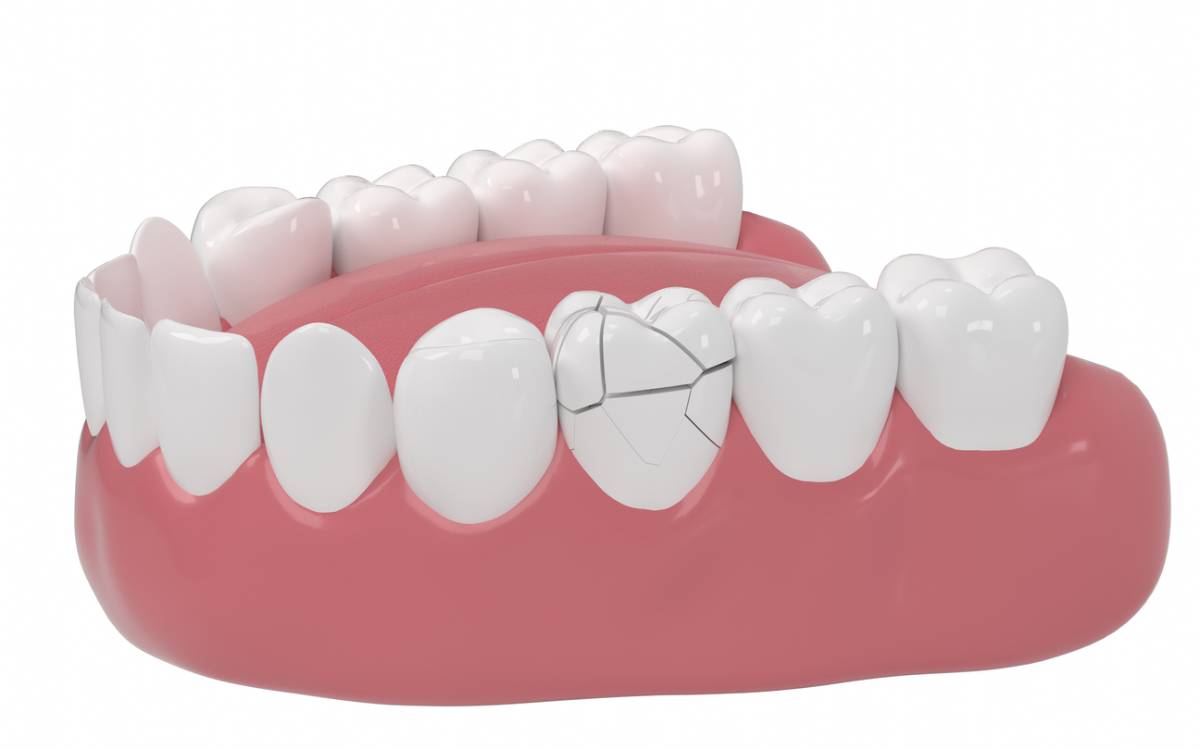Dental crowns are an effective cosmetic and restorative dental treatment. Often referred to as “caps,” dental crowns are a tooth-shaped prosthetic treatment that covers your tooth. They provide strength and structure to teeth that are weak or damaged. Dental crowns also look and function just like your natural teeth. Because of this, they seamlessly blend into your smile. Despite how strong and long-lasting they are, dental crowns are not entirely indestructible. Below, you will find the top causes of cracked or broken dental crowns.
Top causes of cracked or broken dental crowns
Dental crowns can improve the look and function of your smile. They provide strength and structures to teeth that have been damaged or wrecked by decay. Consider the following causes of dental crown damage and how to avoid it.
Biting Or Chewing Hard Objects:
Biting down on or chewing hard objects is one of the most common causes of damaged dental crowns. While they are highly durable and strong, they are not indestructible. The pressure from biting or chewing hard objects can put too much stress on the crown. This can lead to cracks, breaks, or the crown completely dislodging. To ensure you don’t damage your crown, avoid these harmful habits.
Improper Bite:
Malocclusion, also referred to as an improper bite, is a common cause of damaged dental crowns. The alignment of your teeth can create an uneven distribution of force. Because of this, it can cause damage to your crowns. This can be in the form of cracks or brakes. It can also shorten the longevity of your dental crown. Talk with your dentist about whether or not you are a good candidate for crowns. Orthodontic treatment may be necessary to ensure your crown treatment lasts.
Bruxism:
Bruxism refers to the habitual grinding or cleaning of your teeth. This is a common cause of dental crown damage due to the pressure. The consistent intensity puts a lot of stress on your crowns and natural teeth. The best way to prevent this is to wear a nightguard. This can protect your teeth while you sleep. However, you should also address the cause of your bruxism. Common issues include stress and anxiety. This can be addressed through talk therapy, medication, or mindfulness meditation.
Tooth Decay:
Tooth decay is bad for your overall oral health in addition to the structural integrity of your crowns. Crowns are effective in providing strength to teeth that have become weak due to decay. However, they cannot prevent future decay. Avoid issues with your crowns caused by tooth decay by maintaining a healthy oral care routine. This includes daily brushing and flossing, in addition to regular dental visits. Address these issues right away, as early intervention is key.
Trauma:
Accidents can happen to anyone at any time. Whether it’s a sports injury or a car accident, trauma can damage your crowns. If you experience a traumatic injury that impacts your mouth, consult with a dentist right away. Injuries to your mouth can impact your oral health. Prompt treatment is necessary to ensure your long-term oral health.
Dental Crown Treatment
If you think your crown is damaged, contact a dentist right away. The team at Smile Studio Dentistry is skilled in cosmetic and restorative dentistry. They have helped countless patients restore their smiles and improve their overall dental aesthetic.
Issues with your smile can impact your oral health and your confidence. Restoring your damaged crown can improve your speech, ability to effectively, and the appearance of your smile. It can also help you feel more confident smiling and talking with others. Avoid waiting and contact the team Smile Studio Dentistry today to schedule an appointment!

